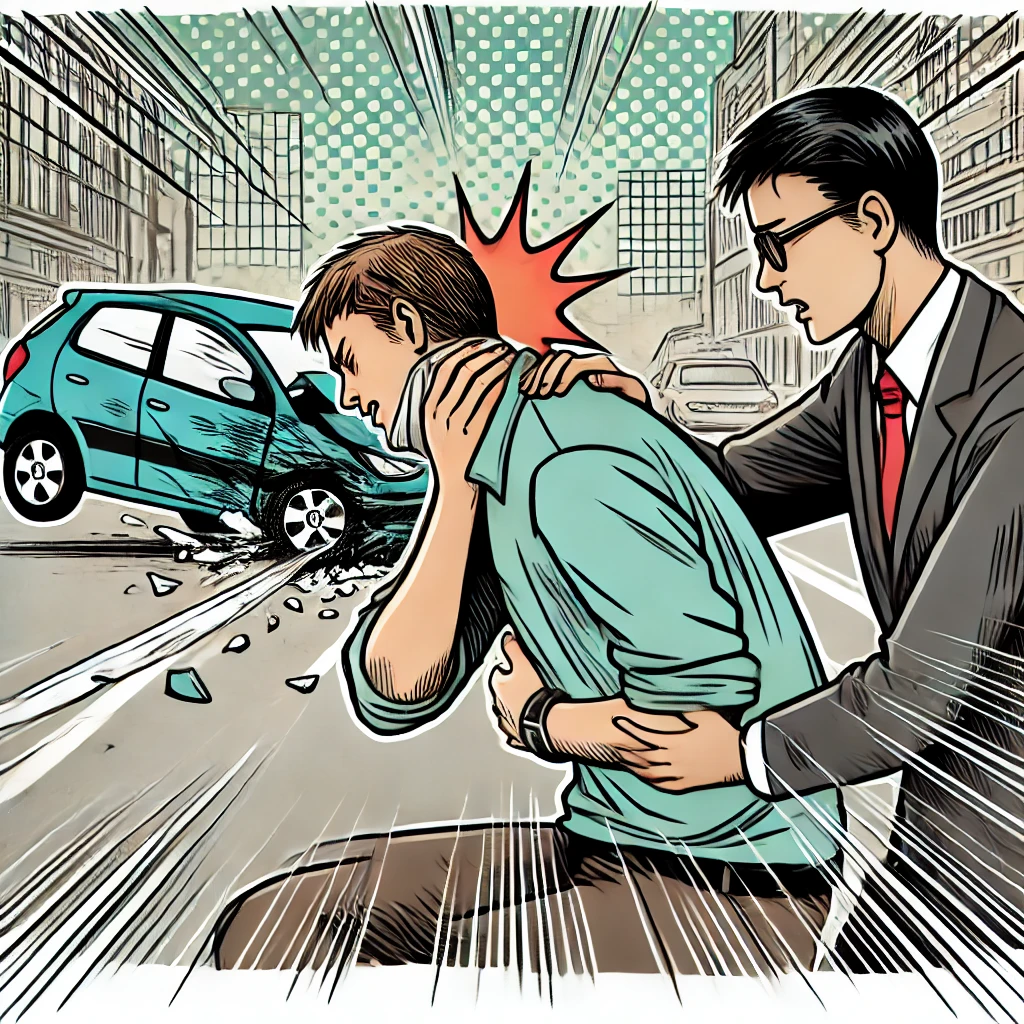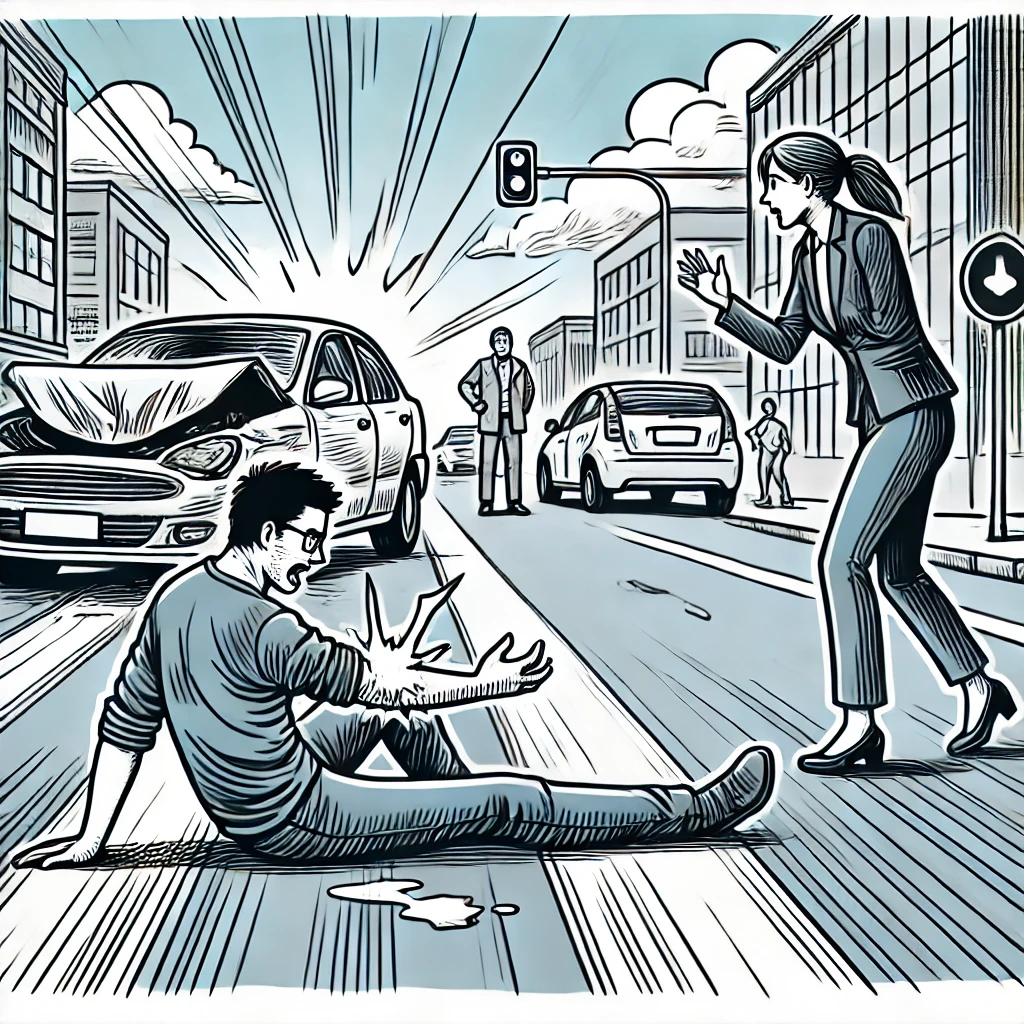Commonly, there are injuries you may not notice immediately after an accident. You walk away from a car crash, thinking, “Wow, that could’ve been worse.” No broken bones, no blood—just a little shaken up. Maybe a minor headache, a bit of soreness. You go home, shake it off, and assume you got lucky.
Then, days (or even weeks) later, your neck stiffens up, your stomach starts hurting for no reason, or you feel like your emotions are all over the place. What’s going on?
This happens way more often than people realize. Some injuries from car accidents don’t show symptoms right away, either because of adrenaline, swelling that takes time to build up, or the way the body reacts to trauma. Ignoring these can lead to long-term health issues or even life-threatening complications.
Let’s go over some of the most common injuries you may not notice right away—and why you should never ignore them.

1. Headaches That Start Days Later (Could Be a Concussion or Brain Injury)
After a crash, a headache might seem normal. Stress, dehydration, maybe a lack of sleep. But if it gets worse over time, don’t brush it off—it could be a sign of a concussion or even a brain bleed.
🔹 Signs to watch for:
- Persistent or worsening headaches
- Dizziness or balance problems
- Memory issues or brain fog
- Sensitivity to light or noise
One guy I know was in a fender bender, didn’t even hit his head, but a few days later, he kept getting headaches. Turned out he had post-concussion syndrome from the sudden jolt of the crash. His doctor told him that even whiplash can cause a mild brain injury, even without direct impact.
If a headache won’t go away after a crash, get checked out.
2. Neck & Shoulder Pain That Creeps Up Later (Whiplash or Spinal Issues)
Whiplash is the classic delayed-onset injury. You feel fine at first, but a day or two later, your neck stiffens up like a board and turning your head feels impossible.
🔹 Whiplash symptoms:
- Neck pain or stiffness
- Shoulder pain or upper back soreness
- Headaches (especially at the base of the skull)
- Numbness or tingling in arms
A friend of mine ignored mild neck pain after a crash, thinking it was just soreness. A week later, she was dealing with migraines, dizziness, and shooting pain down her arms. She finally went to a doctor, and it turned out she had a herniated disc in her neck. She needed physical therapy and months of recovery—and it all could’ve been caught earlier.
Even if it seems like just a little stiffness, don’t ignore it. Whiplash and spinal injuries can lead to chronic pain if untreated.
3. Abdominal Pain That Seems Random (Internal Bleeding Warning Sign)
This one is serious. If your stomach starts hurting days after an accident, especially with bruising or dizziness, get to the ER ASAP—it could be internal bleeding.
🔹 Red flags:
- Severe stomach pain that doesn’t go away
- Deep purple bruising around your abdomen
- Dizziness or fainting
- Weakness or cold sweats
A case from a 2008 study in the Journal of Trauma found that seatbelt injuries from car crashes can cause delayed spleen or liver ruptures, where internal bleeding doesn’t show up right away. These injuries can be fatal if not treated.
If you have unexplained stomach pain after an accident, do not wait—internal bleeding is a medical emergency.
4. Emotional Changes (PTSD or Post-Concussion Syndrome)
Not all injuries are physical. If you feel anxious, depressed, or constantly on edge after a crash, it could be post-traumatic stress disorder (PTSD) or a mild brain injury.
🔹 Signs to look for:
- Flashbacks or nightmares about the accident
- Feeling on high alert or easily startled
- Mood swings or irritability
- Avoiding driving or being near cars
I once talked to someone who was completely fine physically after a crash but couldn’t bring themselves to drive for months. Every time they got behind the wheel, their hands would shake. Therapy helped, but they didn’t even realize it was PTSD at first—they just thought they were “being weird.”
If you feel “off” after a crash, don’t ignore your mental health. PTSD is real, and getting help early can make a huge difference.
5. Numbness or Tingling (Could Be a Pinched Nerve or Spinal Injury)
If you feel tingling, weakness, or numbness in your hands, arms, or legs, it could mean a nerve injury or spinal damage from the accident.
🔹 Common causes:
- Pinched nerves from whiplash
- Herniated discs pressing on spinal nerves
- Sciatica (pain running from your lower back down your leg)
A guy I know had mild back pain after a crash but didn’t think much of it. A month later, he started getting numbness in his fingers. Turns out, he had a herniated disc in his upper spine that was pressing on a nerve. He needed surgery.
If you feel numbness, tingling, or weakness—get checked ASAP.

How Long After a Car Accident Can Injuries You May Not Notice Immediately Show Up?
Honestly, it depends. Here’s a rough guide:
- Concussion symptoms → Minutes to a few days
- Whiplash & spinal injuries → Hours to a week
- Internal bleeding → Hours to a few days (but life-threatening if ignored)
- PTSD → Weeks to months
- Herniated discs & nerve pain → Days to weeks
The biggest mistake people make? Assuming they’re fine just because nothing hurts right away. Adrenaline can mask pain for hours or even days. Some injuries take weeks to fully show up.
Final Thoughts: Listen to Your Body & Get Checked
If you’ve been in a car accident, don’t just assume you’re fine because you initially feel okay. There are likely injuries you may not notice. Some of the most dangerous injuries are the ones you may not notice right away.
Here’s what to do:
- If anything feels off—even days later—see a doctor.
- Keep track of any new symptoms and don’t downplay them.
- If you’re dealing with PTSD or anxiety, get help early.
- If your injuries affect your life, talk to a lawyer—you might need compensation for medical bills and time off work.
Ignoring symptoms can turn a minor injury into a lifelong problem. Be smart, get checked, and take care of yourself.
Author: Jake Calloway
Jake Calloway is a freelance investigative writer with a background in emergency medicine and over a decade of experience covering personal injury and accident recovery topics.

